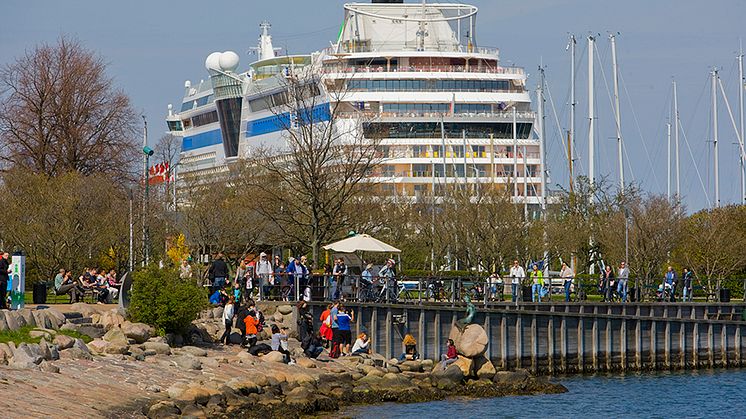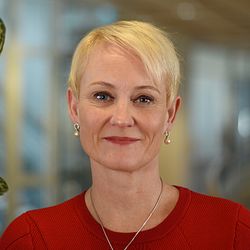
News -
Neptunes will reduce noise
Neptunes is the project that is getting to grips with the noise issue. CMP and a number of other ports are behind the collaboration. The aim is to produce a standard for measurement and classification from which the entire industry can benefit – and which will reduce noise in the long-term!
It is now two years since CMP and some fifteen other ports joined together in the Neptunes project. The collaboration will pave the way for more effective management of ship-generated noise, which is frequently an environmental problem in ports throughout the world.
”This issue is increasing in importance now that cities and their ports are getting ever closer to each other,” says CMP’s environmental manager Petra König. ”Noise is not a particularly major problem for CMP, however, Neptunes will enable us to share experiences from other ports and be proactive in an issue that is growing in importance.”
Petra König emphasises that the port operators do not have control over ship-generated noise, which primarily arises from engines, pumps, fans and ventilation systems. At the same time, the ports want to participate in finding effective solutions and have consequently decided to institute a joint initiative.
”The idea is that the solutions produced via Neptunes will subsequently be handed over to shipping companies, authorities or other recipients, to take responsibility for the practical implementation. It can thus be said that we are contributing to shortening the take-off period for new measures.”
So far the project has focused on surveying the noise problem and producing a common standard for how measurements are conducted. A proposal has now been produced and around 25 noise measurements will be taken on ships in various ports in 2018.
”Based on the surveys and measurements, we then want to create a model for classification, i.e. a way to ”label” ships depending on how much noise they make,” Petra König says.
In the future, a model such as this could enable visiting ship to notify the port office of which noise classification they have. This would influence where in the port the ship could dock and which side should face towards the city centre. The idea is also that better noise measurement and new classifications would also enable shipyards and shipping companies to invest in technical improvements to reduce noise from ships.
”Neptunes will now continue to measure noise, analyse the results and produce a model for classification of ships. It will probably not be until 2020 before our final proposals are presented,” Petra König says.
